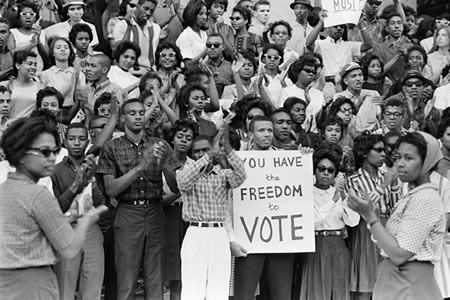February 12, 2016
Black History Month: The Fight for Social and Economic Justice Continues
One of the most significant events in our country’s history was the civil rights movement of the 1960’s. From the March on Washington in 1963, where Dr. Martin Luther King delivered his inspirational “I Have a Dream” speech, to the march from Selma to Montgomery in 1965, the movement showed that people of all races and religions can come together to stand against injustice and oppression.
Over 50 years later, the fight against injustice and oppression continues. Today, a new generation of activists is faced with high incarceration and unemployment rates in the African American community, along with a growing divide between the rich and poor, a shrinking middle class, stagnant wages, high student debt, job and housing discrimination, and under-served communities that are struggling with increasing inequality, racial profiling and social unrest. From the Making Change at Walmart and the Fight for $15 campaigns to Black Lives Matter to the fight for LGBT equality to the fight to change our broken immigration system, activists have taken the lead in tackling these issues and pushed income inequality, social justice and gender equality into the national conversation.
Civil rights and labor leader A. Philip Randolph, who organized the March on Washington, once said that “A community is democratic only when the humblest and weakest person can enjoy the highest civil, economic, and social rights that the biggest and most powerful possess.”
The UFCW is proud to stand with today’s activists as they continue the fight for social and economic justice.
